Today, Ukrainian media, especially in the front-line and de-occupied territories, cannot survive without external support. Therefore, the efforts of international financial donors and the Ukrainian state are very important to them. Such an opinion was provided by the heads of the local Ukrainian press.
“The lion’s share of the editors surveyed by the National Union of Journalists of Ukraine (NUJU) are not planning their work beyond grant funding,” notes NUJU Secretary Vitalii Holubev, the author of a survey on the needs of local newspapers conducted by the Union with the support of the International Institute for Regional Media and Information (IRMI, Ukraine) in partnership with Fondation Hirondelle and financial support of Swiss Solidarity. “Some editors say that their media lives from a grant to a grant, and without NUJU‘s support, it would be challenging to survive.
According to Vitalii Holubev, the editors agree that in wartime, it is not so much the financing of grant programs to cover certain topics, even very important ones, that is important, but financial maintenance in terms of salaries, taxes, payment of utilities, rent of premises, etc. After all, if there are no newspapers (and their extinction is quite a real hazard), there will be no one to cover current topics. In parallel with financial support, educational programs should be developed, providing newsrooms with new knowledge to help their survival.
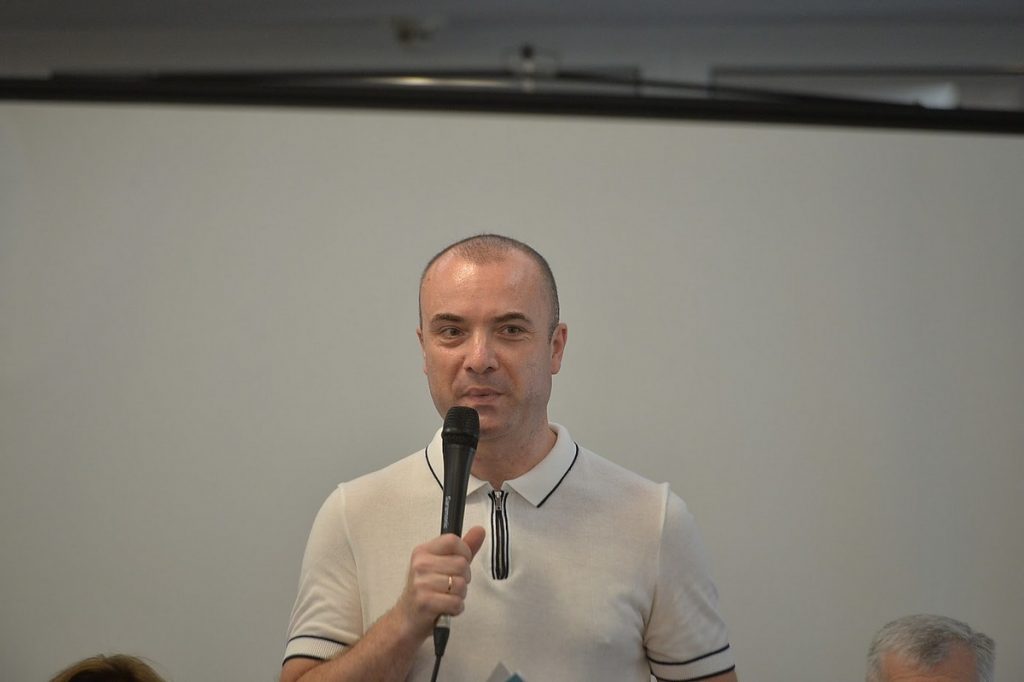
The financial stability of the media, in particular, printed media, was discussed on July 4 during a training under the educational project titled Steps To Sustainable Development for local media from the front-line and de-occupied territories. The session was held with the assistance of UNESCO and the Japanese government.
NUJU President Sergiy Tomilenko and Union‘s First Secretary Lina Kushch emphasized the importance of local media, which carry out the mission of informing people about the situation locally. In the front-line territories, this is the inf about evacuation routes, placement of storage facilities, places of humanitarian aid, medical aid, public services, etc. The Union does a lot to ensure that the local media can survive during the war, but it is also essential that after the war’s end, their quality grows and they become modern.
“It is especially important to invest in human capital,” Lina Kushch emphasized. “Journalists suffer a lot from the consequences of the war. Without investment in human capital, we will face a major labor shortage after victory. The issue of journalist personnel to work in the restored media and talk about the restoration of Ukraine is in the field of attention of the NUJU, and we will talk about it on all platforms.”
Oleksii Soldatenko, an IRMI program director, singled out the mission of communicating with society, including in the de-occupied territories, where people are traumatized by disinformation, dangers, and troubles of war, among the many important missions currently performed by the media.
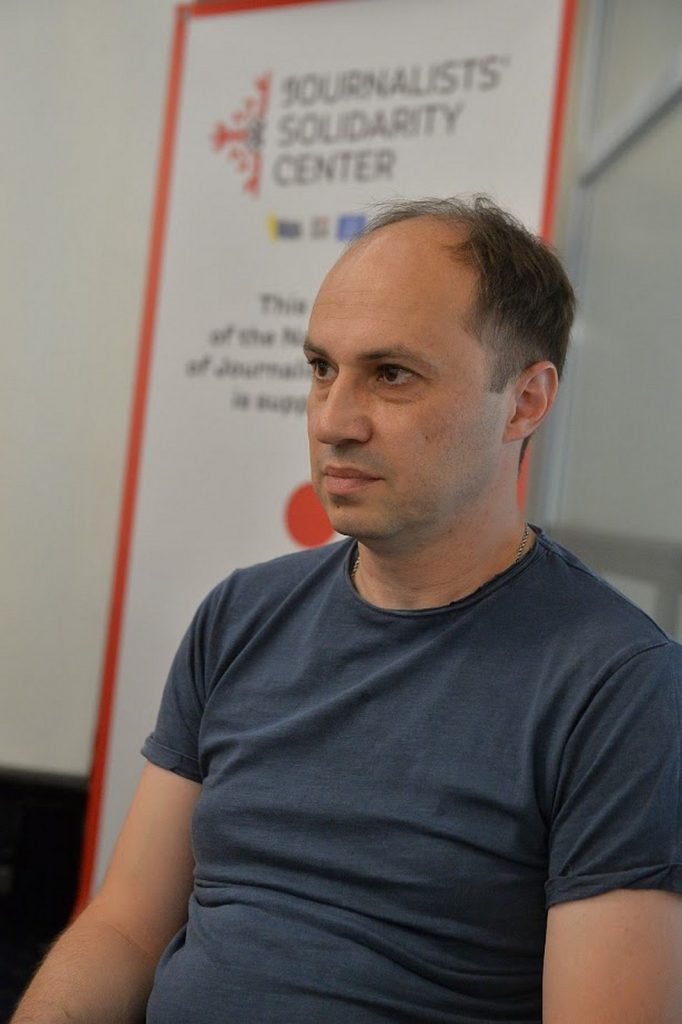
He drew participants’ attention to the fact that today, financial donors understand the state the Ukrainian press is in.
“It is quite obvious to them that, apart from external support, there are no other possibilities of survival for the Ukrainian press today. No one will talk about ‘advertising marketing strategies’ today, as it’s untimely. Everyone understands that now, financial assistance and training are needed,” said Oleksii Soldatenko. He added that IRMI program participants receive precisely such types of support. The print media going through difficult times even before the war may again face tough competition from online media and social networks after the war’s end, and therefore must be ready for this.
Anatolii Zhupyna, the editor of the Novyi Den newspaper from Kherson, joined the discussion with Oleksii Soldatenko and noted that most newspapers are not ready to look into the future, not planning their activities even a year ahead. His newspaper, a completely self-sufficient and financially profitable publication before the war, is today published only thanks to external financial support.
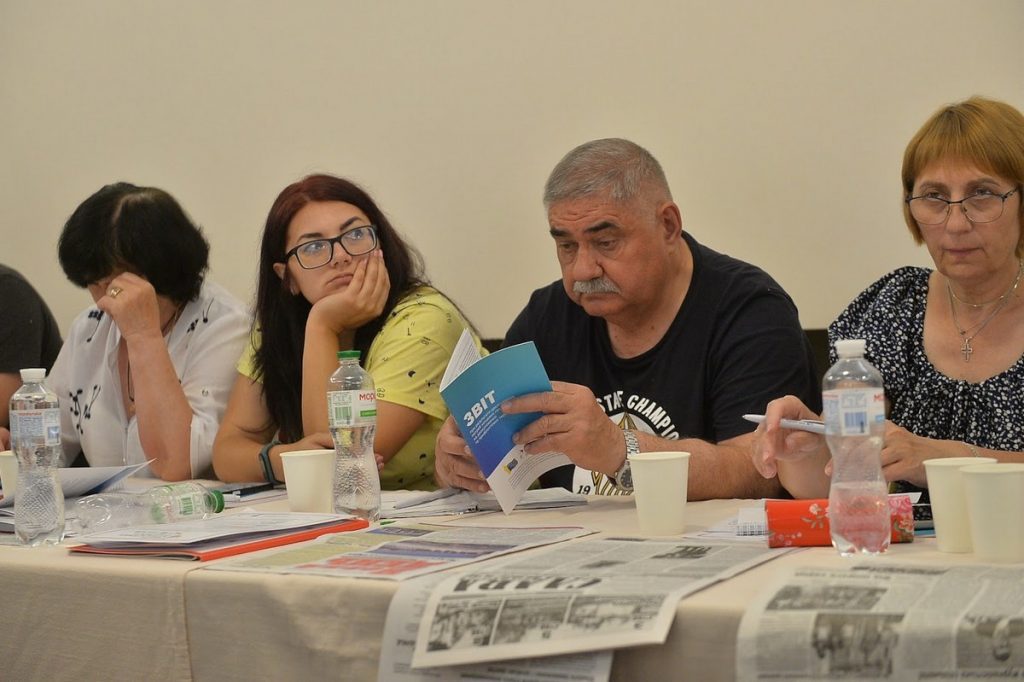
In response, Oleksii Soldatenko explained that financial donors want to see substantiated applications for financial support in order to have a clear idea of what a newsroom team does in the future, what resources it has, and how to work with the readership.
Bohdan Chervak, the first deputy chair of the State Television and Radio Broadcasting Committee of Ukraine, noted that the current generation would go down in history as the one able to find answers to the unprecedented challenges Ukraine faces.
“Currently, we are talking about the restoration of print media in the front-line and de-occupied territories, which in the conditions of infrastructural problems are often the only way to inform local residents. The restoration of the media is, in fact, the first step in the post-war reconstruction of Ukraine. The restoration of Ukraine began with the restoration of print media,” said Bohdan Chervak. “This is an objective reality that must be recognized. Unfortunately, there is still a skeptical attitude towards printed media compared to the Internet. Many think that print media is an outdated source of information. On the other hand, print media have become a kind of marker of Ukrainian statehood in the de-occupied territories: people everywhere are happy having familiar newspapers with familiar logos and journalists. Where the Defense Forces liberate the city, a Ukrainian newspaper appears, and with it – a sense of returning Ukraine.”
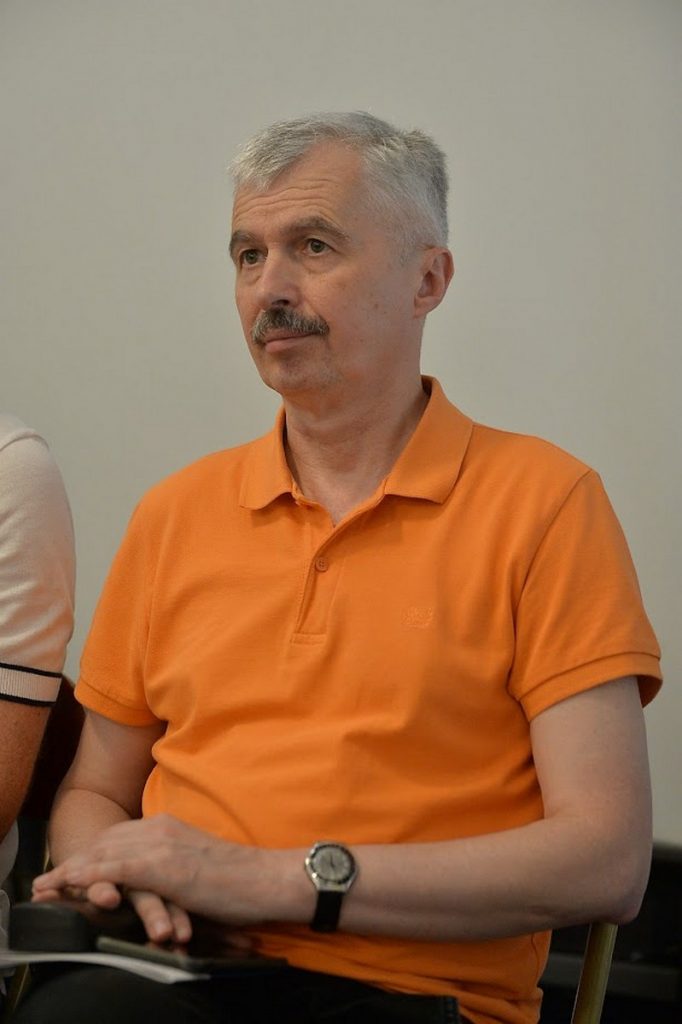
Bohdan Chervak noted that the state is limited in its financial capabilities today, but he promised to support the NUJU in its initiatives.
NUJU President Sergiy Tomilenko said that the Union‘s position is that the state should pay attention not only to the ‘information marathon’ held on leading TV channels but also to local and hyperlocal press and online media.
“We understand that the state cannot finance the local press today, but it can lobby the interests of the regional press at the international level,” said Sergiy Tomilenko. “Because today international partners tell us that the Ukrainian government is appealing to foreign governments for the provision of weapons and cultural support, but there are no requests for regional media support.”
“The state should decide on an information policy,” notes Tetiana Kaushan, the editor-in-chief of the Putyvlski Vidomosti newspaper from the Sumy Region. “If we have newspapers, anonymous telegram channels with dubious professional and ethical attitudes will remain alone, and the state will have to deal with them.”
Journalists participating in the discussion emphasized that authorities – both state and local self-government should implement a well-thought-out information policy aimed at the survival of local media. There are many comments in the media about the activities of the Ukrposhta state postal service, which they consider unconstructive in relation to the press because, with the increase in prices for postal services, the quality of these services is consistently low.
“We have been hearing from the authorities for decades that the media is important. But behind the scenes, everything happens the other way around, and every government reform becomes another blow to the press,” said Oleksii Kovalchuk, the head of the Dnipropetrovsk regional organization of the NUJU/head of the Visti Prydniproviya newspaper. “We survive despite everything that the state does to us.”
As earlier reported, the NUJU, with the support of the project titled Increasing Ukrainian Media Sustainability implemented by the IRMI in partnership with Fondation Hirondelle and financial support of Swiss Solidarity, conducted a survey of the needs of local newspapers in the front-line and de-occupied territories of Ukraine. Its results were presented during the training for de-occupied and front-line media.
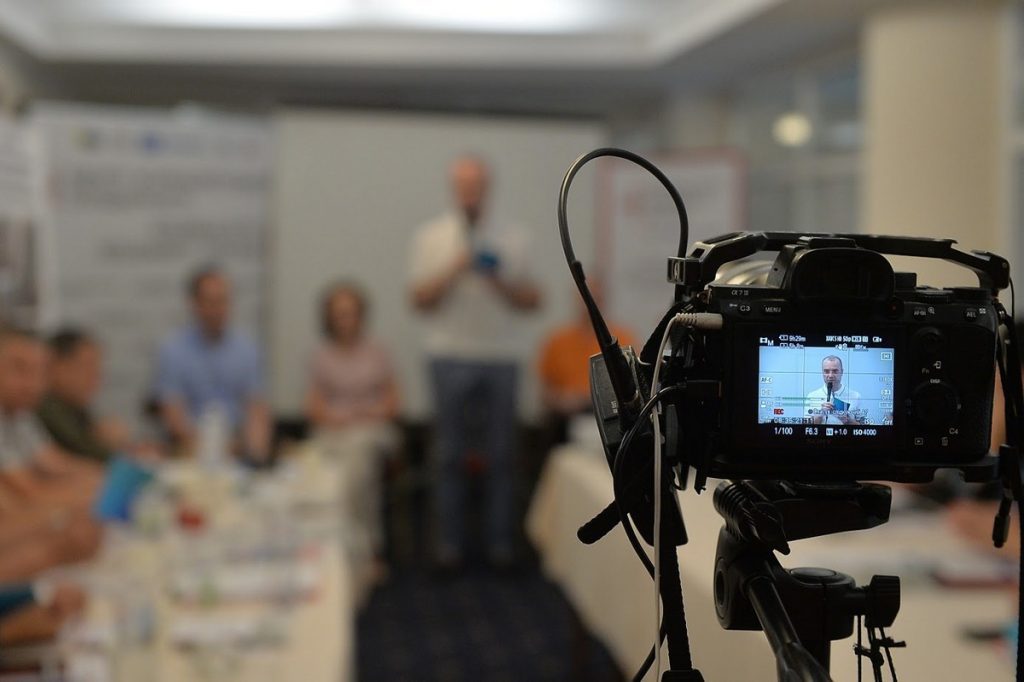
NUJU Information Service

 THE NATIONAL UNION OF
JOURNALISTS OF UKRAINE
THE NATIONAL UNION OF
JOURNALISTS OF UKRAINE
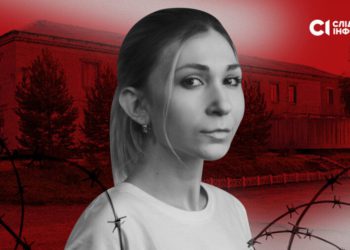















Discussion about this post